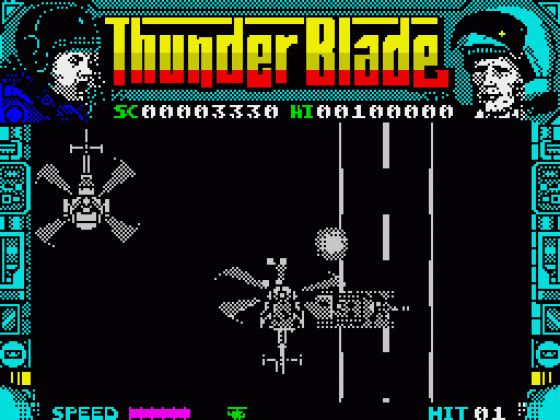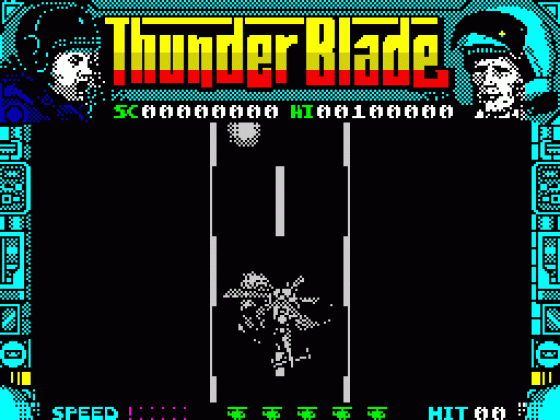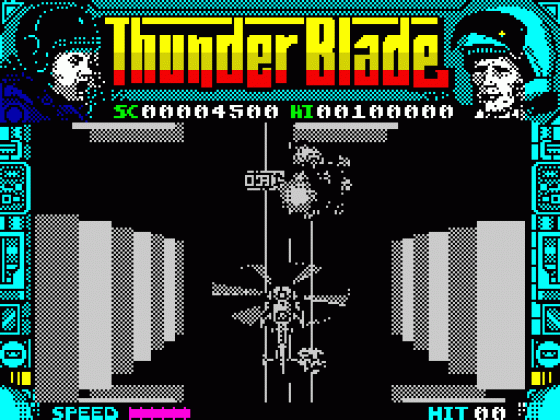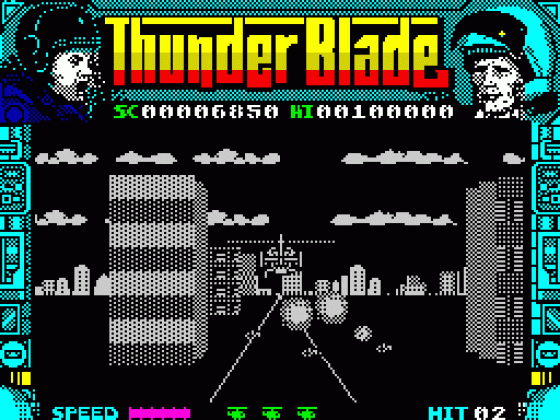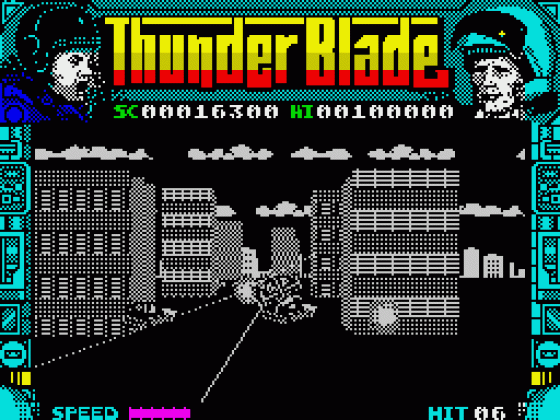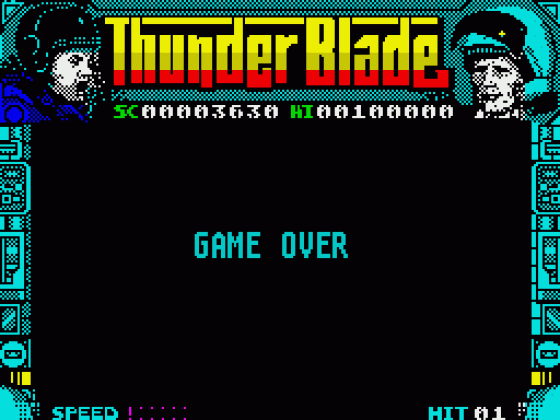Other Reviews Of Thunder Blade For The Spectrum 48K/128K/+2
Thunderblade (US Gold)
Rotor-Wing arcade action takes Spectrum by storm!
Thunder Blade (US Gold)
A review by Sean Kelly (Your Sinclair)
Thunderblade (U. S. Gold)
A review by Julian Rignall (C&VG)


 8th October 1988
8th October 1988


